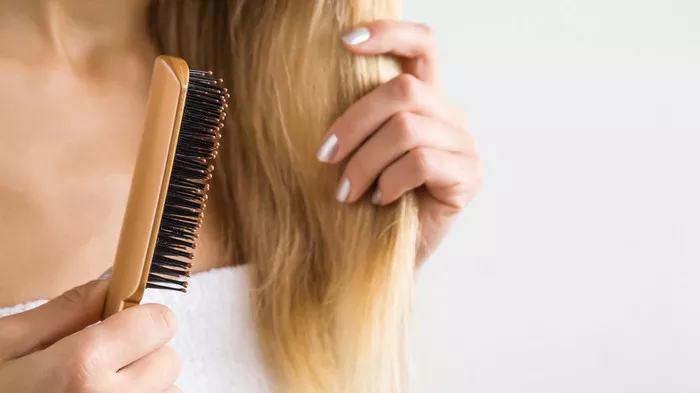Embarking on a weight loss journey can be an incredible accomplishment for both your body and mind. However, it’s not uncommon to encounter an unexpected side effect – hair loss. The relationship between weight loss and hair fall is complex, but rest assured, there are steps you can take to mitigate this issue. In this SEO-optimized article, we will explore why hair fall occurs after weight loss and provide you with a comprehensive guide on how to stop it. Let’s dive into the world of hair care post-weight loss and regain your hair’s vitality.
Understand the Science Behind Hair Loss After Weight Loss
Hair loss after significant weight loss, often called telogen effluvium, is a common phenomenon. It occurs due to the body’s response to a major change in weight, diet, or stress levels. During weight loss, the body can perceive the calorie deficit and reduced nutrient intake as a stressful event. In response, it may shift hair follicles into a resting phase (telogen), causing hair shedding. Additionally, nutrient deficiencies that sometimes accompany extreme diets can affect hair growth. The good news is that this type of hair loss is usually temporary, and hair typically regrows as the body adjusts to the new weight and nutrient levels.
What is Gradual Weight Loss Approach?
A gradual weight loss approach is a method of losing weight steadily and sustainably over an extended period, typically at a rate of 0.5 to 2 pounds (0.2 to 0.9 kilograms) per week. This approach emphasizes making gradual, long-term changes to one’s diet and lifestyle, rather than resorting to extreme diets or quick fixes. It often involves adopting healthier eating habits, increasing physical activity, and making sustainable behavior modifications. Gradual weight loss is generally considered more effective and healthier than rapid weight loss, as it allows the body to adjust, reduces the risk of muscle loss, and promotes the development of sustainable habits, which are essential for maintaining a healthy weight in the long term.
Nutrient-Rich Diet for Hair Regrowth
The following are foods that are good for hair regrowth:
1. Protein:
Incorporate lean protein sources like poultry, fish, and legumes into your diet. Protein is crucial for the formation of hair strands.
2. Vitamins:
Consume foods rich in vitamins A, C, and E, which are antioxidants that promote a healthy scalp and hair follicles.
3. Minerals:
Ensure you get an adequate intake of iron, zinc, and biotin, which are essential for hair growth.
Hair Care Routine Post-Weight Loss
Here’s your post-weight loss hair care routine:
1. Gentle Shampooing:
Use a mild, sulfate-free shampoo to cleanse your hair and scalp. Avoid aggressive scrubbing, as it can damage weakened hair.
2. Conditioning:
Apply a nourishing conditioner to keep your hair hydrated and manageable. Use a wide-toothed comb to detangle your hair gently.
3. Avoid Heat Styling:
Minimize the use of heat styling tools like flat irons and curling irons. Heat can weaken hair and lead to further hair loss.
Supplements for Hair Health
Several supplements can support hair health:
1. Biotin:
A B-vitamin that promotes hair growth and strengthens hair.
2. Vitamin D:
Plays a role in hair follicle cycling and can prevent hair loss.
3. Iron:
Iron deficiency can lead to hair loss; supplements can help if you have low iron levels.
4. Zinc:
Supports hair growth and repair, especially in cases of zinc deficiency.
5. Vitamin C:
An antioxidant that aids collagen production for strong hair.
6. Omega-3 Fatty Acids:
Found in fish oil, they can reduce hair loss and enhance hair thickness.
Before starting any supplement regimen, consult a healthcare professional to determine your specific needs and potential interactions with existing medications. A balanced diet with these nutrients is generally the best way to support hair health.
See Also: How to Stop Diffuse Hair Loss: A Step-by-Step Guide
Conclusion
Hair fall after weight loss can be a disheartening side effect, but with the right strategies, you can mitigate its impact and regain hair health. Understanding the science behind hair loss, adopting a gradual weight loss approach, and maintaining a nutrient-rich diet are vital steps in stopping hair fall. Additionally, a gentle hair care routine, supplements, and stress management techniques can all contribute to healthier, more resilient hair. Remember, it’s essential to consult healthcare professionals for personalized guidance on addressing hair loss related to weight loss. By following these tips, you can celebrate your weight loss success while enjoying a full and vibrant head of hair.


